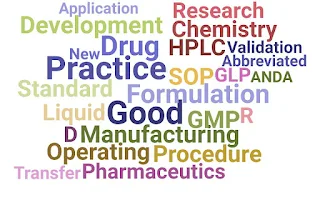A Formulation Scientist plays a critical role in developing and optimizing the composition of products in various industries, including pharmaceuticals, biotechnology, cosmetics, and food and beverages. Here's a comprehensive overview of the role:
Formulation Scientist Job Opportunities
1. Types of Employers:
- Pharmaceutical Companies: Develop new drugs and improve existing formulations.
- Biotechnology Firms: Focus on biotech products and therapies.
- Cosmetics Industry: Create and test cosmetic products.
- Food and Beverage Companies: Develop new food products and improve existing ones.
- Chemical Companies: Work on industrial formulations and specialty chemicals.
- Contract Research Organizations (CROs): Provide formulation services to various clients.
2. Roles and Responsibilities:
- Develop and optimize formulations for products.
- Conduct stability studies and ensure product safety and efficacy.
- Collaborate with R&D and production teams.
- Design and execute experiments to assess formulation performance.
- Troubleshoot and solve formulation-related issues.
Education Qualification
1. Undergraduate Degree:
- Field: Chemistry, Pharmaceutical Sciences, Chemical Engineering, or related field.
- Duration: Typically 3-4 years.
2. Postgraduate Degree (Optional but Preferred):
- Field: Pharmaceutical Sciences, Medicinal Chemistry, Chemical Engineering, or a specialized area related to formulation science.
- Duration: 1-2 years (Master’s), 3-5 years (Ph.D.).
3. Certifications (Optional):
- Certified Pharmaceutical Scientist (CPS)
- Good Manufacturing Practice (GMP) Certification
Salary Expectations
1. Entry-Level (0-2 years):
- Range: $60,000 - $80,000 per year.
2. Mid-Level (3-5 years):
- Range: $80,000 - $100,000 per year.
3. Senior-Level (5+ years):
- Range: $100,000 - $130,000+ per year.
4. Factors Influencing Salary:
- Location: Salaries can vary significantly by region.
- Industry: Pharmaceutical and biotech industries tend to pay higher salaries compared to others.
- Experience and Education: Advanced degrees and specialized skills can increase earning potential.
Future Outlook
1. Demand for Formulation Scientists:
- Growth: Steady demand due to ongoing research and development in pharmaceuticals, biotech, and other industries.
- Innovation: Advances in drug delivery systems, personalized medicine, and sustainable formulations will drive demand.
2. Key Trends:
- Increased Focus on Personalized Medicine: Tailoring formulations to individual patient needs.
- Sustainability: Development of eco-friendly and sustainable formulation practices.
- Advanced Technologies: Incorporation of AI and machine learning in formulation development.
Interview Preparation
1. Common Questions:
- Technical Questions: Describe your experience with formulation development. What methods do you use for stability testing?
- Behavioral Questions: Tell me about a time you faced a challenge in your formulation work. How did you handle it?
- Scenario-Based Questions: How would you approach developing a formulation for a new drug with specific release characteristics?
2. Key Skills to Highlight:
- Technical Expertise: Knowledge of formulation techniques, stability studies, and quality control.
- Problem-Solving Abilities: Ability to troubleshoot and optimize formulations.
- Communication Skills: Ability to explain complex concepts clearly and collaborate with interdisciplinary teams.
Coaching Material
1. Recommended Books:
- "Pharmaceutical Formulation Development of Peptides and Proteins" by James A. McGinity.
- "Pharmaceutical Dosage Forms: Tablets" by Larry L. Augsburger and Stephen W. Hoag.
2. Online Courses:
- Coursera: Courses on pharmaceutical sciences and formulation development.
- edX: Advanced courses in chemical engineering and drug development.
3. Professional Organizations:
- American Association of Pharmaceutical Scientists (AAPS)
- International Society for Pharmaceutical Engineering (ISPE)
4. Practice Resources:
- Interview Simulation Tools: Practice answering common interview questions and get feedback.
- Technical Problem Sets: Solve problems related to formulation challenges and case studies.
Preparing for a career as a formulation scientist involves a combination of strong educational background, relevant experience, and ongoing learning. Keeping up with industry trends and continually developing technical skills will be crucial for long-term success.





No comments:
Write comments